Volodymyr Zelensky, star of the TV series “The Servant of the People”, in which he played the role of a history teacher who is elected president of Ukraine, has indeed become the 6th president in the history of independent Ukraine. Many political analysts and sociologists gave the comedian with no political luggage behind him, but also no experience, unconditional victory in the first round of voting. As for the second round, his chances against the incumbent head of state, Petro Poroshenko were again seen as very high.
And it turned out the experts were not at all mistaken.
But the next two questions for many Ukrainians as well as foreign political observers – depending on the political ground on which they stood – were : (a) how did this former stand-up comedian get to such heights ?… Or (b) how did Ukraine manage to sink to such depths ?

The self-made man
Zelensky’s biography makes it quite plain that he made it all by himself. He had no affluent or influential relatives or friends; he was born in January 1978 into a typical middle-class family of Russian-speaking academics from Krivoy Rog, a fairly large city and important industrial centre in the Dnipropetrovsk Oblast of Ukraine.
It was towards the end of the 1980s when a Soviet specialist in engineering, together with his wife and nine-year-old son returned from Erdenet in Mongolia, at the end of a four year official posting.
And no one could possibly have guessed the consequences that this move would have on the life of the young Volodymyr Zelensky.
Soon afterwards, his father was nominated head of the department of cybernetics and computing hardware at the the Krivoy Rog Institute of Economics; his mother also worked as an engineer.
At school, Volodymyr Zelensky became an activist and tried his hand at all sorts of sporting activities, from Greco-Roman wrestling to basketball and from ballroom dancing to playing the piano.
It was during this period that he organized his first group of players and also met his future wife, Elena Kiyashka.
Later he wanted to study to become a stage manager but ultimately enrolled at the Institute of Economics where his father was a professor. There, he studied law and graduated successfully but he never entered a practice, despite two months of internship; the experiments with comedy and acting during his school years had already determined his future profession.
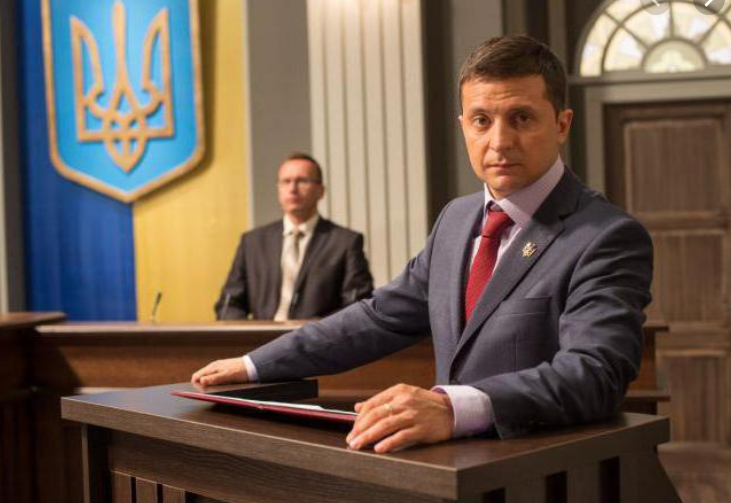
Zelensky, the showman
In 1997, Zelensky together with a band of friends created his first project, ‘Kvartal 95’, a team of authors and actors who specialized in writing and staging comedy sketches for public performances.
Two years later, ‘Kvartal 95’ was invited to Moscow to participate in the Major League of KVN by the famous Russian television game show host, Alexander Maslyakov.
The acronym KVN stands for ‘The Club of the Happy and Inventive’, a television game show which has been on air since 1961. It involves teams of enthusiastic and clever young people – usually university students – competing against one another in a series of improvised, as well as rehearsed comedy and musical sketches before a live audience and a jury comprised of stars of the stage and screen.
The sketches were also peppered with witty repartee and often politically risqué satire and scathing criticism of social issues.
And it was in this context that young Volodymyr Zelensky took his very first steps in politics.
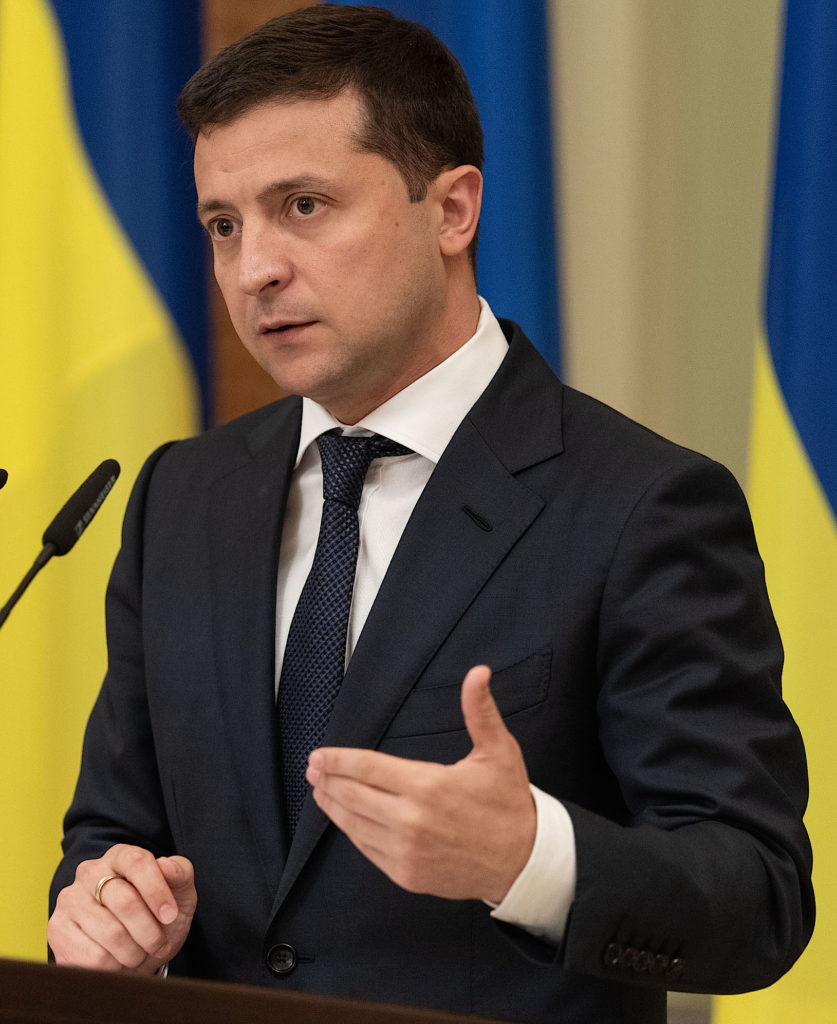
The invitation to Moscow proved to be a lucky ticket that everyone in the team took advantage of. Zelensky and the other members of the team spent a lot of time in Moscow and frequently toured around post-Soviet countries. They soon became celebrities.
The next major event in Zelensky’s career path was the founding in 2003 of Studio Kvartal 95. This is an audiovisual company that provides a full range of services in the production of TV programmes, films and series. It is also a leading provider of entertainment TV content. Kvartal 95 began producing TV shows for the Ukrainian TV ‘Channel 1+1’ and three years later, the team moved to the rival channel ‘Inter TV’.
In fact, the company tops the ratings every year in Forbes Magazine’s list of the most successful showbiz companies in Ukraine.
Volodymyr Zelensky, the co-founder and creative producer of Kvartal 95 has reportedly said:“ Our ambitious objective is to make the world a better place, a kinder and more joyful place with the help of the tools that we have, that is, humor and creativity. We are moving towards this goal, and we will try to conquer the whole world, of course ! ”.
The revolution that forged a destiny
In 2010, soon after Viktor Yanukovich won the Ukrainian presidential election, Zelensky became the executive producer of Inter TV and Kvartal 95 turned into a powerful commercial organisation.
It has been reported that by the end of 2013, the capital of Zelensky and Co. had reached 10 million US dollars.
But at about the same time, in November 2013, dark clouds began to gather over Ukraine, which would lead to the momentous events that reshaped, yet again, the course of Ukraine’s modern history.
It led, among other crises, to the occupation of Crimea and Russia’s conflict with Ukraine.
And unbeknownst to Zelensky and his close circle of friends and collaborators at the time, this event would, albeit tangentially, affect his destiny and put him on the path that would lead to Ukraine’s ultimate seat of power.
The Euromaidan demonstrations, named after Maidan square in the centre of Kiev, began after the decision by the then president Viktor Yanukovich to suspend the signing of the Association Agreement with the European Union in November 2013.
This agreement would have provided Ukraine with loans in return for political reforms, but would also have thwarted trade relations with Russia, Ukraine’s biggest trade partner at the time.
Yanukovich’s decision to postpone the signing was seen as an attempt to back out of the deal and led to a wave of violent protests. Some 130 people, including 18 policemen were killed.
As tensions continued to rise, Yanukovich fled to Russia in February 2014.
Demonstrators took control of the streets of Kiev and parliament voted unanimously to strip Yanukovich of the presidency.
Volodymyr Zelensky was an ardent supporter of the Euromaidan demonstrators.
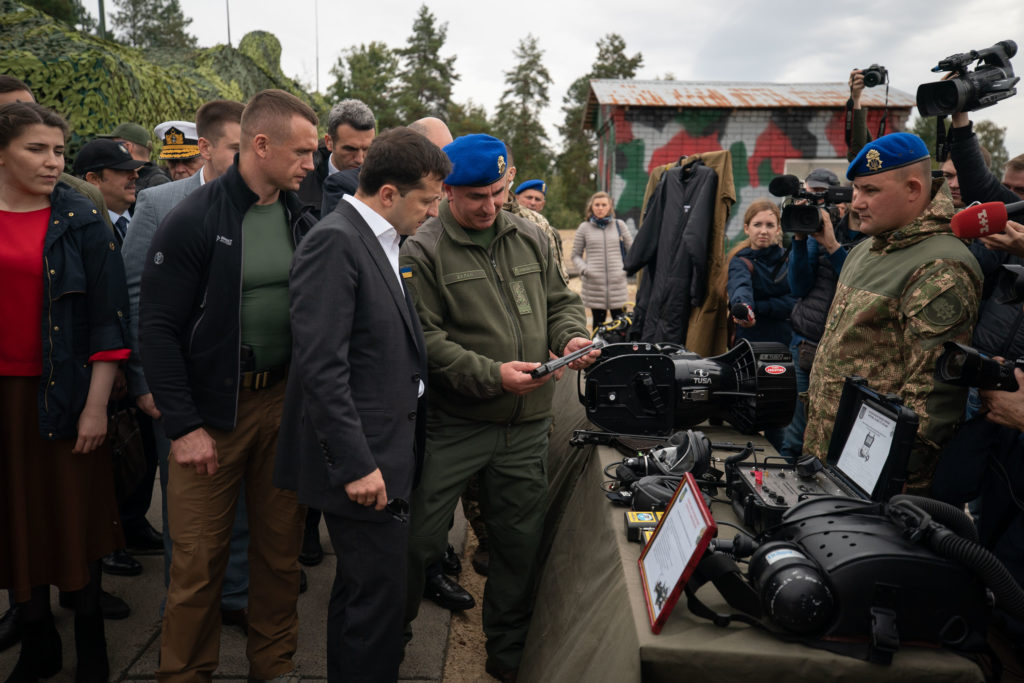
He organized live concerts for the nationalists from Dobrobats in the Donbass region, which experienced great unrest following the Euromaidan events in Kiev. It was this unrest that later grew into an armed conflict between pro-Russian separatists and supporters of the post-revolutionary Ukrainian government.
Zelensky also donated millions of Hryvnias (the Ukrainian currency) to various nationalist organisations as well as the Ukrainian army and made speeches in which he firmly condemned separatism, as well as military aggression.
He even addressed the Russian president on the air in what was seen as an attempt to negotiate with Vladimir Putin.
Two years after the bloody events in Maidan Square, Crimea was lost and the Donbass region entered a period of prolonged crisis and tension.
But Zelensky and his team continued to tour and perform in those regions, in support of the nationalists.
Beginnings of a political career
In August 2014, the ministry of culture declared that it would henceforth ban Russian artists from performing in Ukraine. Zelensky vehemently opposed this move.
At the same time, after Ukrainian media reported that he had made donations amounting to millions of Hryvnias to the Ukrainian army and other nationalist groups, a number of Russian artists and politicians launched a petition for Zelensky’s works to be banned in Russia.
Again, he spoke out against censorship and discrimination in both Russia and Ukraine.
However, it was in March 2018 that Zelensky’s company, Kvartal 95 Studio created a new TV series that would truly launch his political career.
He seized the opportunity to also found a new political party bearing the same name as the series : ‘Servant of the People’.
Zelensky plays the role of a humble and honest high-school history teacher, Vasily Goloborodko, who is elected president of Ukraine after his scathing criticism of government corruption is filmed by a student and goes viral on social media.
There are dream sequences in which we see his determined efforts at fighting corruption by avoiding at all costs, the extravagant luxury associated with former leaders of Soviet states.
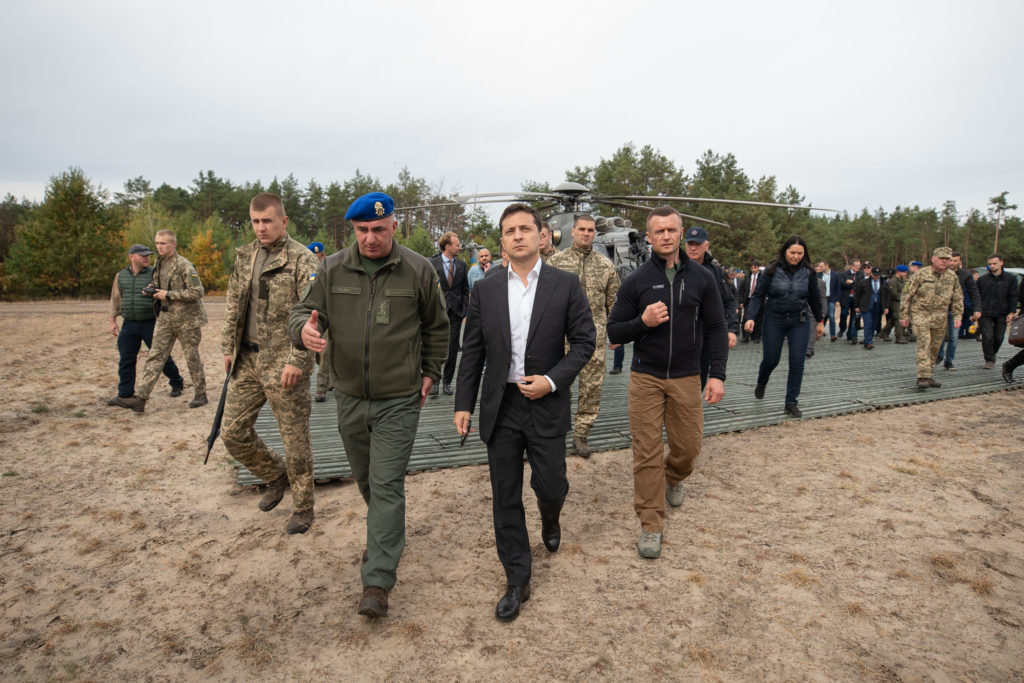
As president, Goloborodko fights corruption and self-righteousness honestly and fairly. He wins peoples’ hearts by speaking out against the establishment, promising to put an end to corruption and to raise Ukraine’s status abroad.
This is something Ukrainian audiences had never seen or heard previously.
And since a political party called ‘Servant of the People’ actually did exist and what’s more, was headed by Zelensky himself, a large majority of Ukrainians wished they could vote for the fictitious character associated with Zelensky.
And in a surprise move, Zelensky declared his candidacy for the April 2019 presidential election on the New Year’s Eve edition of his variety show on 1+1 TV
Zelensky emerged as one of the front-runners among the more than three dozen candidates, including the incumbent Petro Poroshenko and Orange Revolution veteran Yulia Tymoshenko, virtually from the moment he declared his candidacy.
In the twilight zone
Many experts and political analysts have pointed out that behind Zelensky the famous actor and comedian, lies also a very savvy businessman.
Other than being one of the main founders of Studio Kvartal 95 which, over the years, has made very handsome profits and a big name for itself, especially after the creation of the Servant of the People TV series, he also owned several profitable businesses in Russia linked to television production and broadcasting.
According to Ukrainian website opinionua.com, in early 2019, investigative journalists unearthed documents showing that a Cypriot company co-founded by Kvartal 95 had established production facilities in Russia and that Zelensky was one of the beneficiaries.
However, he later announced that he had relinquished his shares and had withdrawn from the company.
Zelensky worked as artistic director of Studio Kvartal 95 until 2011; he then became the general producer of Ukrainian television channel, Inter TV.
However, one year later, he made a move that would have significant consequences on his later career.
In October 2012, Zelensky left Inter TV and signed a joint production agreement between his own company, Studio Kvartal 95 and a private Ukrainian television network that was owned by Ihor Kolomoisky, one of the wealthiest oligarchs in Ukraine.
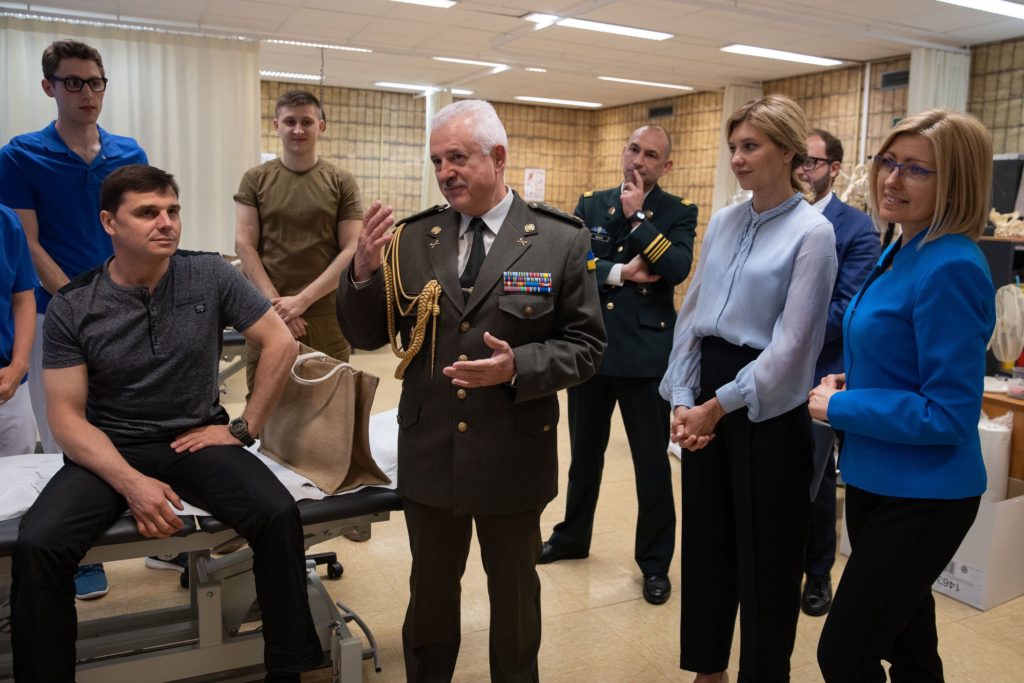
He sided with the Ukrainian government when the Russian-backed separatists started advancing in 2014. Then he fell victim of the anti-corruption reforms that made it very difficult for oligarchs to extort public funds.
At that point Kolomoisky went anti-government and began promoting Zelensky on his TV channel.
Kolomoisky is a majority share-holder in the 1+1 Media Group, whose TV channel 1+1 first broadcast Zelensky’s comedy series ‘Servant of the People’.
It was also on 1+1 TV, on 31 December 2018, that Zelensky first announced his candidacy in the upcoming presidential election.
The announcement in effect preempted then president Petro Poroshenko’s annual New year’s address and was seen as a provocative move. It also raised questions about Kolomoisky’s role in Zelensky’s election campaign.
This relationship would in fact, become the subject of close scrutiny ever since Zelensky declared his intention to enter politics and run for the presidency.
Observers and political analysts have repeatedly noted that his past financial connections with Russian businessmen and oligarchs such as Ihor Kolomoisky in Ukraine, could damage his reputation and more seriously, compromise his independence.
Among these is the Warsaw-based Centre for Eastern Studies (OSW) which said that should Zelensky obtain favourable results, Kolomoisky would be able to send more deputies allied to him to parliament, thereby increasing his influence in the country.
It was also suggested that Kolomoisky gave his support first to Yulia Tymoshenko and then to Volodymyr Zelensky because he was seeking revenge for the nationalization of his PrivatBank and the lost revenues that ensued.
Ihor Kolomoisky is the co-founder of PrivatBank, Ukraine’s largest lender and commercial bank. He is also involved in other fields of activity including finance, mass media, metal and petroleum industries in Ukraine, Russia and Romania.
He was at first a staunch supporter of president Petro Poroshenko.
But in December 2016, in order to protect its millions of customers and to preserve its fragile financial stability, PrivatBank was nationalised by the Ukrainian government after an audit showed that large scale fraud had been taking place.
Kolomoisky was accused of embezzlement running into billions of US dollars and the Ukrainian government had no choice but to inject over $5.5 billion into the financial institution as a bail-out package.
Kolomoisky, who holds triple Ukrainian, Israeli and Cypriot citizenship left the country in 2017 and lived in self-imposed exile.
After PrivatBank brought the lawsuit to the High Court in London, $2.6 billion worth of Kolomoisky’s assets were initially frozen, but that same court ruled in 2018 that it had no jurisdiction for further proceedings.
And finally, in April 2019, in spite of a Ukrainian court’s ruling that the nationalization of PrivatBank had been illegal all along, Ukraine’s central bank refused to reverse the nationalization and said it would appeal the court’s decision.
The road to the Presidency
In due course, Volodymyr Zelensky took active measures to distance himself from Kolomoisky and restore his public image. He embarked on a very unorthodox campaign strategy that had never before been witnessed in Ukraine.
He actively avoided press conferences and complicated policy statements in favour of comic sketches and short explanations which he posted on YouTube and Instagram.
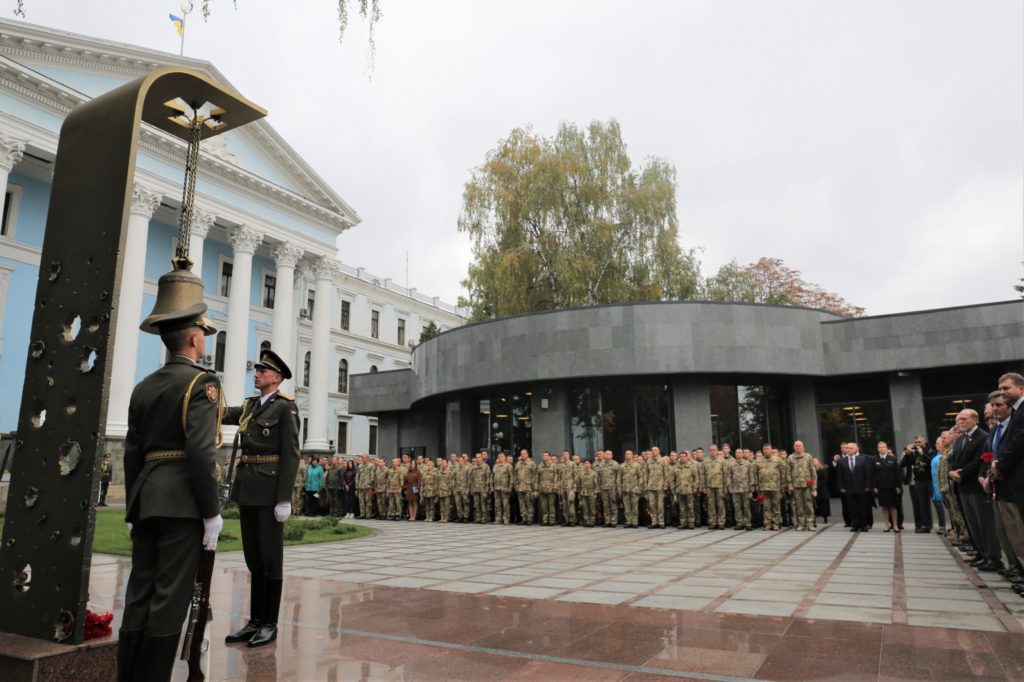
He also elaborated parts of his programme together with social media users and asked them to list their most pressing concerns, so that he could include them in his political agenda.
He also promised to assume the presidency for one term only and to pass a bill ensuring that all crucial government policies shall be determined by the Ukrainian people through referendums.
He plans to strengthen the economy through free competition, development of domestic production and planified long-term and low-cost loans. The income tax system is also to be overhauled, as will the social security and health care systems, among others.
He became in fact, a screen onto which a majority of Ukrainians projected their expectations.
No wonder that in the first round of voting on March 31, 2019, Zelensky obtained over 30% of the vote whilst the incumbent Petro Poroshenko managed to win only 17%, despite his very strong pro-European stand.
On April 19, 2019, two days before the second round, a packed Olympic Stadium in Kiev witnessed the long-awaited debate between Zelensky and Poroshenko.
The incumbent tried with all his might to portray Zelensky as an inexperienced novice who lacked the courage and character to confront Russian president Vladimir Putin, but utterly failed to scathe his opponent in any significant manner.
And so, on April 21, 2019, Volodymyr Zelensky was elected president of Ukraine after winning an impressive 73% of the vote in the second round.
The first challenges
Within days of his electoral victory, Zelensky faced his very first challenge in the field of foreign policy.
Russian president Vladimir Putin announced that he would offer Russian passports to Ukrainian citizens in areas controlled by the Russian-backed separatists in the war-torn eastern part of the country, where hundreds of thousands of Ukrainians had been displaced.
Zelensky however ridiculed Putin’s announcement by posting a reply on Facebook in which he said that he in turn, would extend “Ukrainian citizenship to Russians who lived under, and suffered from authoritarian and corrupt regimes” !
In his inaugural address on May 20, 2019, which was delivered in Russian and Ukrainian, Zelensky called first and foremost for national unity.
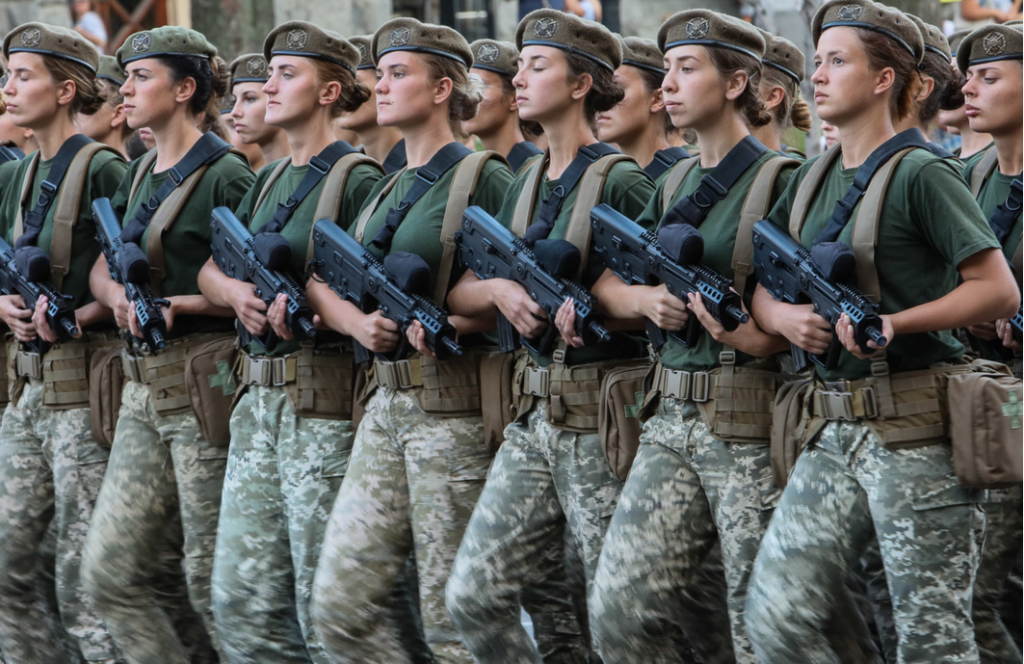
But since his party, Servant of the People had no parliamentary seats and what’s more, his victory did not confer a legislative mandate, the dissolution of the ‘Verkhovna Rada’ (Supreme Council or parliament) became unavoidable.
On July 21, 2019, snap elections were held which Zelensky himself described as “probably more important than the presidential election”.
‘Servant of the People’ obtained an absolute majority. It won 254 seats out of the 450-seat Supreme Council.
This was the first time in post-Soviet Ukrainian history that a single party had absolute control of the legislative agenda.
The old demons however didn’t take long to resurface. As Zelensky set himself to the task of building a new administration, the ties to his former business partner became the subject of scrutiny again.
Ihor Kolomoisky had returned from exile a few days before Zelensky’s inauguration and he had publicly declared that he would in no way be involved in any of the policy decisions of the new administration.
Zelensky in turn, declared that despite the valuable platform that Kolomoisky’s media empire had provided for his election campaign, his office would not grant any special favours to the oligarch.
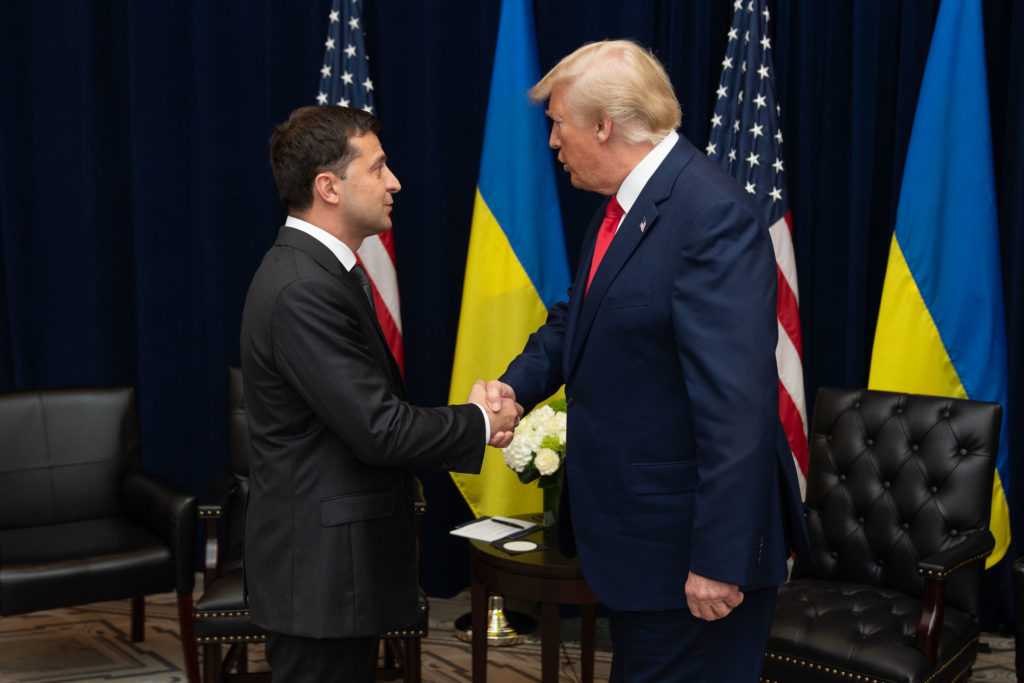
In the eye of the storm
In September 2019, as a result of a formal complaint against president Donald Trump, lodged by a whistleblower in the US intelligence community, Zelensky and his administration suddenly found themselves thrust into the global spotlight and at the centre of an American political scandal.
The matter concerned a very large military aid package of some $400 million to Ukraine that was allegedly withheld by president Trump unless the Ukrainian government launched an official investigation into irregularities by former US vice president Joe Biden and his son, Hunter.
Joe Biden is of course the leading Democratic party’s front-runner who hopes to challenge Trump in the 2020 US presidential election.
A Ukrainian natural gas company, Burisma Holdings that was accused of corruption, appointed Hunter Biden, a complete newcomer in this field, to their board of directors.
They paid his firm more than $1 million per year.
And Ukraine wasn’t the only country where Hunter Biden’s business and his father’s diplomacy as former vice president intersected…it also happened in China.
In July 2019, in a telephone call to Zelensky, Donald Trump discussed the possibility of an investigation into the affairs of the Bidens, and he admitted that he had ordered the military aid package to be withheld until after the call.
But he insisted that nothing was offered to or demanded from Zelensky in exchange for the investigation that he was seeking.
However, Zelensky declared that he would have the Burisma Holdings matter investigated and also sacked Yuriy Lutsenko, Ukraine’s prosecutor general, for having initiated contacts and held discussions about the Bidens with Trump’s personal lawyer, Rudy Giuliani.
The $400 million military aid package was finally released in September 2019, but at that point, US lawmakers had already embarked on their quest for more information on details of Trump’s telephone conversation with Zelensky.
Back on the home front
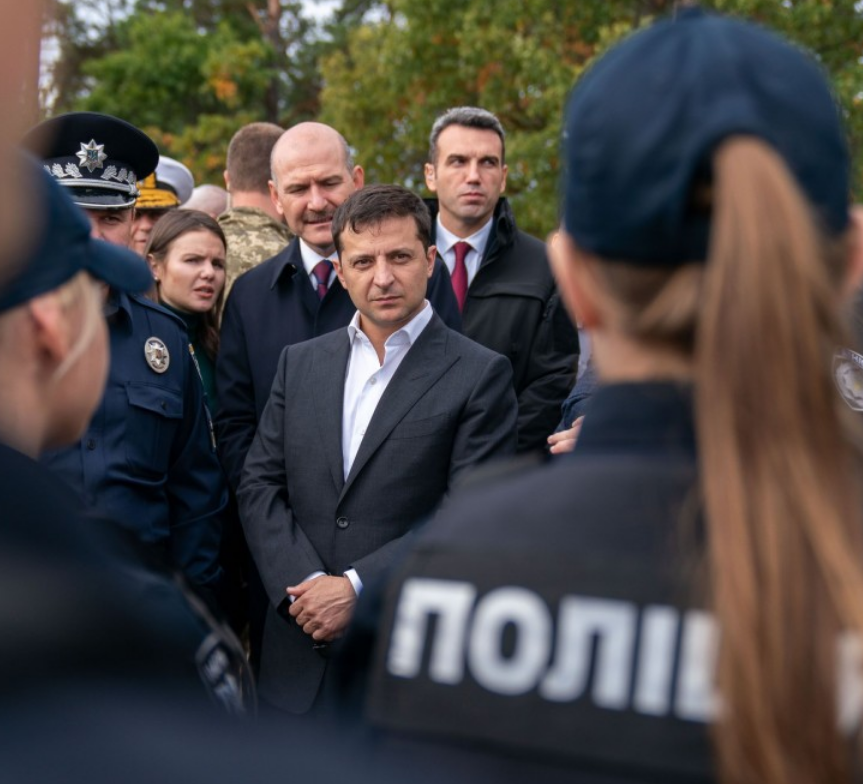
Irrespective of what will ultimately come of Zelensky’s involvement with President Trump’s dealings with his political adversaries, Ukraine’s western allies are closely monitoring Zelensky’s first moves and appointments.
Some of them amid concerns about his inexperience, especially in discussions and dealings with Vladimir Putin, regarding the crisis in eastern Ukraine and Crimea.
But there has already been something to cheer about for the people, and that is when, in early September 2019, 35 Ukrainians were freed in a long-awaited prisoner exchange with Russia.
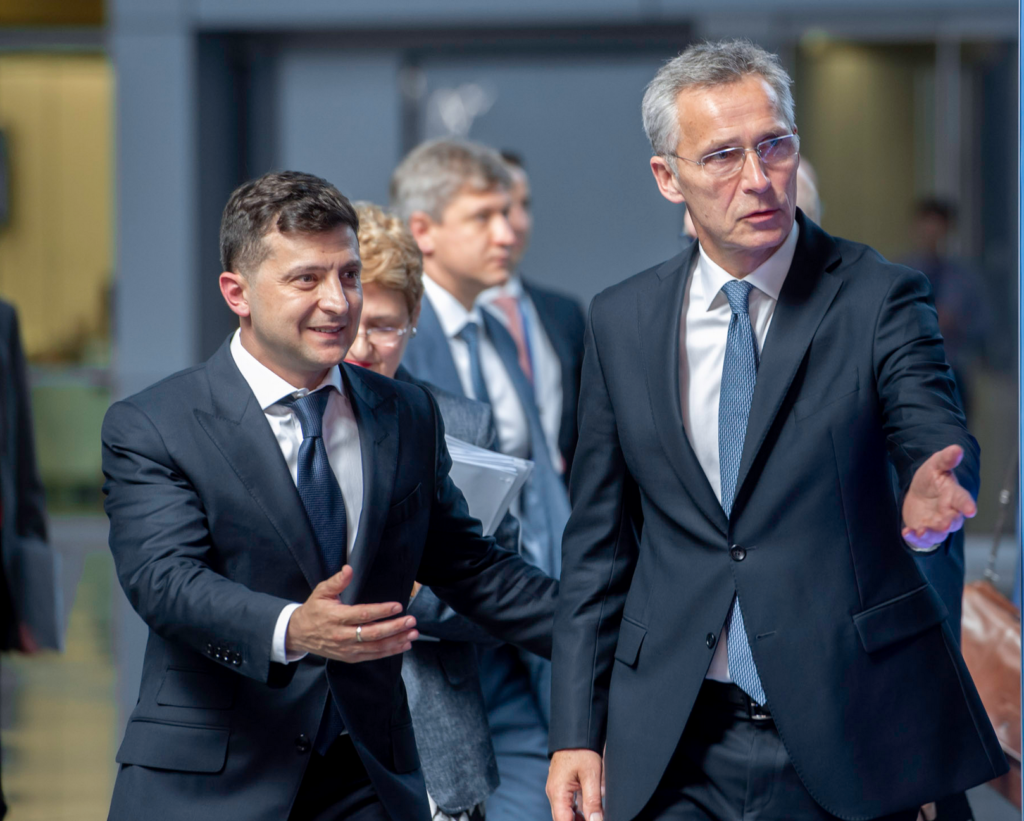
Zelensky, who had discussed the matter with Vladimir Putin over the phone was on hand to greet them personally on the tarmac at Kiev airport. This event was praised internationally as a first step in mending the difficult relations between Ukraine and Russia.
He has also gone to the front lines of the war in eastern Ukraine to assess the situation firsthand and travelled to Brussels to meet with EU leaders to reassure them of Ukraine’s pro-European stance as well as to confirm its intention of ultimately becoming a member of NATO.
However, there is still a lot of work to be done. The most difficult to achieve on a long list of objectives seems the return of occupied territories in the east under Ukrainian control and the payment of war damages by Russia.
His agenda for reshaping society and creating a new Ukraine will certainly be fraught with many challenges and riddled with difficulties and pitfalls. He is, in all probability more acutely aware of these than anyone else.
Ukrainians now await to see President Zelensky put his words into action.
Hossein Sadre


